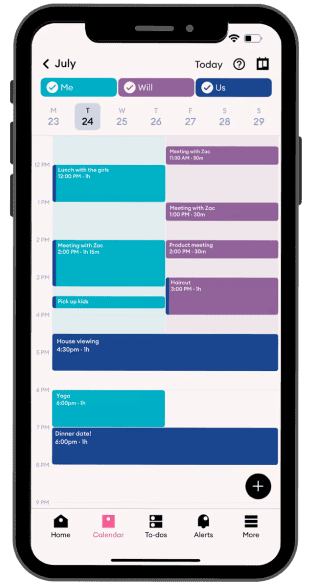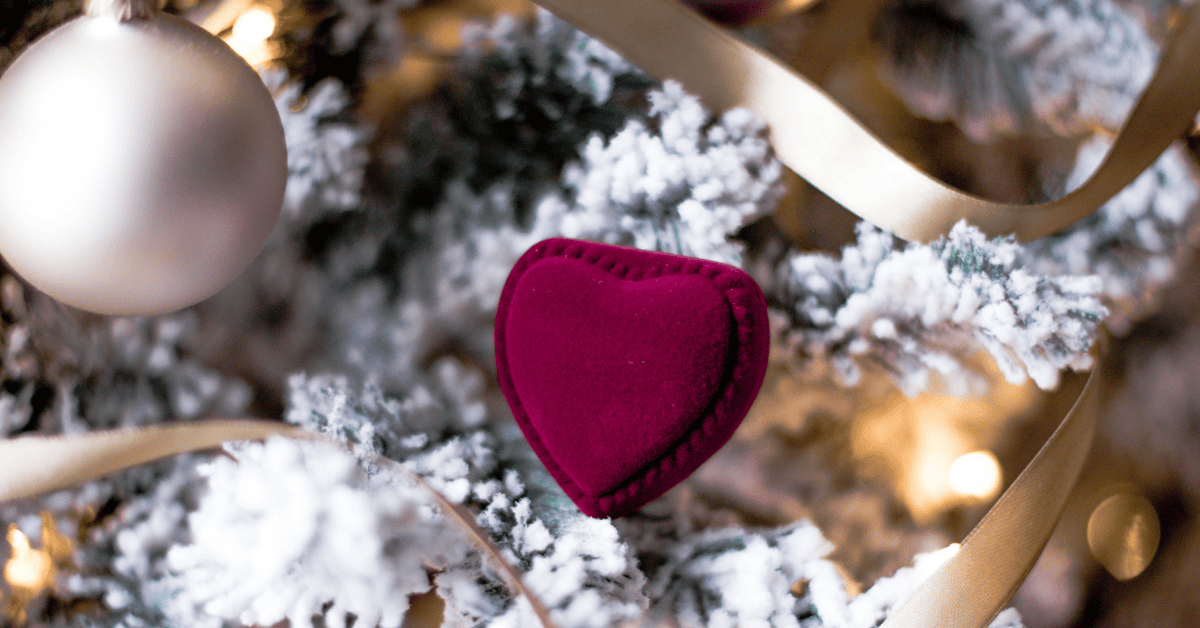What’s the best relationship advice you’ve ever received? Was it from a friend, a parent, maybe even an ex (awkward)? When you hear words of wisdom that give you a fresh perspective on your relationship, the right thing to do is to share them.
That’s why we’re sharing our own favourite pieces of relationship advice, provided from experts, articles, books and even research studies (who says science can’t be romantic?).
We hope they’re as useful to you as they’ve been to us.
Related content: 3 Tips for Newlyweds, According to a Relationship Expert
1) Your own happiness matters too
“Like many people, I grew up believing that marriage required self-sacrifice. Lots of it. My wife, Linda, helped me see that I didn’t have to become a martyr and sacrifice my own happiness in order to make our marriage work,” explains Charlie Bloom, MSW, relationship expert and author of That Which Doesn’t Kill Us: How One Couple Became Stronger at the Broken Places.
“She showed me that my responsibility in creating a fulfilling and joyful life for myself was as important as anything else that I could do for her or the kids.”
This advice is so powerful because it highlights something that lots of couples forget. It’s easy to get lost in the romantic idea of giving up everything to make your partner happy, but the reality is that taking care of your own happiness is beneficial not just to you, but to your partner as well. You can’t fill someone else’s bowl if your own is empty, and keeping yours topped up isn’t selfish. It’s essential.
2) Remember that you’re still an individual
When you fall truly, madly, deeply in love, it can be easy to lose your own sense of self – especially once you add kids into the picture. If your entire world revolves around your relationship, you won’t be taking the time to nurture yourself and pursue your own, individual goals and happiness – see the previous piece of advice on why that’s a problem!
Maintaining your sense of self is critical. It’s why you are the awesome person that you are, and it’s why your partner fell in love with you. Whenever you take the time to indulge in a hobby, have a night out with friends, explore something you care about, by yourself, you aren’t being selfish. You’re being the opposite.
The same goes for your partner. Encourage them to make time to do the things they love, even if it isn’t something you’re doing together. When you grow as individuals, you grow as a couple too.
Sharon Martin, licensed psychotherapist and co-dependency expert, has some advice on how to stay true to yourself:
“Knowing what you like and what matters to you; asking for what you want, rather than always deferring to his/her wants; not keeping yourself “small” or hidden to please others; staying true to your values.”
3) You can’t be each other’s everything
“‘You are my everything’ is a lousy pop-song lyric and an even worse relationship plan. No one can be ‘everything’ to anyone. Create relationships outside The Relationship, or The Relationship isn’t going to work anymore.”
This confronting quote is from Matt Lundquist, LCSW, MSEd, and founder of Tribeca Therapy. You and your partner love each other, but that doesn’t mean that you can expect each other to be one-stop-shops for everything a happy life requires.
“We expect so much from our relationships these days. We want our partner to be a best friend, confidant, co-parent, and companion. Yet, this sets us up to be disappointed when our partner cannot fulfill our needs,” expands David Klow, licensed family therapist, owner of Skylight Counseling Center and author of You Are Not Crazy: Letters from Your Therapist.
This is why making and maintaining a solid friendship circle is so important for healthy relationships. When you expect your partner to be everything, you’re not only putting pressure on them, you’re putting pressure on the relationship too. Look outward, find other outlets, and as Klow says…
“Free up your relationship to be a source of joy rather than something that lets you down”.
4) Communication is connection
Communication and miscommunication is one of the most common issues that all relationships have, from high school sweethearts to married retirees. The key to communicating effectively is remembering that the goal of communication isn’t just to talk or to relay information to your partner. It’s to connect as well.
Tony Robbins, author of Awaken the Giant Within, explains it like this:
“Communication in relationships, at its core, is about connecting and using your verbal, written and physical skills to fulfil your partner’s needs – not just making small talk.”
“Some people like to talk, some prefer touch and others are more visual or respond better to gift giving than an outward discussion of feelings.”
This is why so many people love the Love Languages model created by Dr Chapman. This model focuses on the idea that everybody has one of five different ‘love languages’ as their primary way to express affection.
They include:
- physical touch;
- gift-giving;
- words of affirmation;
- acts of service; and,
- quality time.
Some people show they love their partner by doing the dishes for them or cooking their favourite meal. Other people show their love with plenty of cuddles and kisses. It’s how they connect with their partner.
When you have a different love language to your partner, it can be hard to recognise their way of communicating for what it is: an attempt to connect. This can result in people feeling unloved, like they’re giving more than they’re receiving in the relationship.
This is why it’s imperative to learn and understand your partner’s love language and vice versa. This way, you can communicate on the same level and stop those missed connections.
5) Stop assuming and stay curious
When you first started dating, you and your partner went on this amazing adventure together, discovering new things about one another every time you talked. Every text message and date night revealed a fresh side of who you each are. It was the foundation that your love is now built on.
So why did that exciting process of discovery ever stop? And did it have to?
Samantha Boardman, M.D. and positive psychiatrist, explains why ditching the assumptions is a great move for a relationship.
“We have this almost conceit that we know exactly how [our partner is] going to behave in a given situation. There’s some beauty in accepting the ‘unknowableness’ of somebody and priming yourself to look for what’s different about that person rather than retreating into, ‘I know what they’re going to do, I know the end of this movie’,” she explains.
“Instead of looking for what you know, look for something that’s different about them in some way.”
When you reignite your curiosity, you and your partner open yourselves up to discovering new things about each other – ideas that may have changed, views that may have shifted, new interests and fresh thoughts. You can bring back that process of discovery (and rediscovery) and make your connection even stronger.
6) Date nights matter – science says so
Date nights can be forgotten. It’s easy to do, especially if you’re busy with work, kids and other responsibilities. Here’s a little motivation: studies have shown that married couples who have date nights regularly have significantly stronger relationships than those who don’t.
Not convinced? Here’s the research from the aptly named Marriage Foundation in the UK. It shows that there’s a 14 per cent lower chance of a relationship split among married couples who have date night once a month.
Drs. John and Julie Gottman of The Gottman Institute back up these claims, saying that date nights are integral to relationships. By taking a break from your duties in and out of the home and spending time focusing on one another, you’re giving yourselves the opportunity to really talk, really listen, and to reconnect on a deeper level without ‘life’ getting in the way.
Related content: Booking Date Night is Key to Relationship Happiness
You won’t be surprised to hear that we agree with the doctors and the research. Cupla founders Erika and Will Palmer designed our shared calendar app explicitly to help couples find time for date night.
“We all want to connect on a deeper level with the one we love but sometimes life just gets in the way. We have experienced this first hand … [we were] trying to juggle work, kids, family and social lives and found it was easy to let date night slide, because your partner will always understand,” explain Erika and Will.
“Cupla was born out of the desire to empower ourselves and couples everywhere with the tools to easily spend more quality time together, by removing every obstacle to creating amazing date nights.”
Cupla is like a personal assistant for your relationship. You and your partner sync your calendars, and Cupla automatically makes suggestions for appropriate date night times as well as goals, reminders and even date night suggestions baked right in.
Quality time matters. So let’s make some! Try Cupla on Android or iOS.









